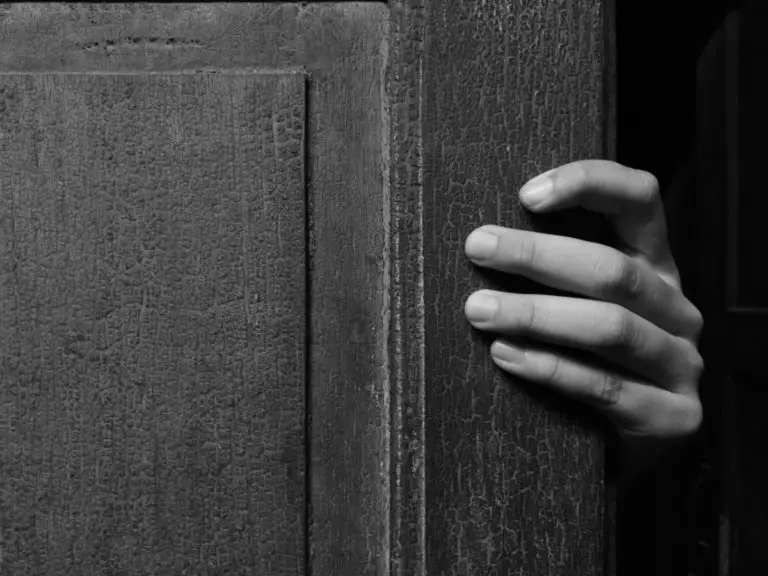A ghost light, for anyone who doesn’t know, is a single, unshaded lamp that’s placed on a stage and left on when the theater is unoccupied. It’s a solitary, sad glimmer of illumination in an otherwise pitch-black performance space. Ghost lights are a safety precaution first and foremost, but as suggested by the name, they’re also believed to keep the ghosts of the theater at bay. In short, ghost lights are lonely and possibly haunted, much like the woman at the center of Candle House Collective’s new experience of the same name.

Ghost Light is one of the six standalone, phone-based encounters that comprise Under the Bed, the latest remote immersive event from Candle House Collective. Spanning about an hour in length, Ghost Light consists of one phone call bookended by several text messages, giving it some similarities to an alternate reality experience (ARX). However, unlike most ARXs, Ghost Light takes place within an hour of your choosing, making it accessible to anyone with a cell phone and a willingness to let their imagination flow.
Co-created by Evan Neiden and Elisa Swanson, Ghost Light is a frightening tale of obsession, captivity, vengeance and the dark side of attraction. Neiden and Candle House Collective have dabbled in horror before, but with this taut experience, they embrace the genre outright. While the group’s work often aims to challenge you, here it aims to disturb and startle you, though perhaps not how you might expect. While the name and premise may suggest you’re in for an encounter with the supernatural, ultimately the only demons found in Ghost Light are human ones.

Ghost Light begins with a text message from a woman named Cheryl. She’s part of the Dorchester, MA, neighborhood watch, who has apparently partnered with Candle House Collective in an attempt to pre-screen potential problems. She needs your help investigating the Papaki Theater, a beloved, 100-year-old playhouse that recently ended their production of The Sound of Music. Since then, strange occurrences have been reported, including lights turning on throughout the night, awful smells emanating from within, and bizarre beetle infestations. You’re to speak with a theater employee as she investigates and report back what you learn. A few minutes later you receive a call from a theater lighting technician named Jean, and you’re on your way.
The bulk of the experience involves you talking with Jean as she explores the Papaki Theater to determine the cause of the disturbances. Candle House Collective excels in painting a visual picture using only sound effects and performance, and it’s particularly strong in Ghost Light. Jean is exploring a physical space, and walks and occasionally climbs as you talk to her. I heard footsteps at times, and often she seemed a bit out of breath like anyone would be climbing stairs while talking on the phone. A remote encounter like this would work without those little touches, but it really makes a difference when they’re included.
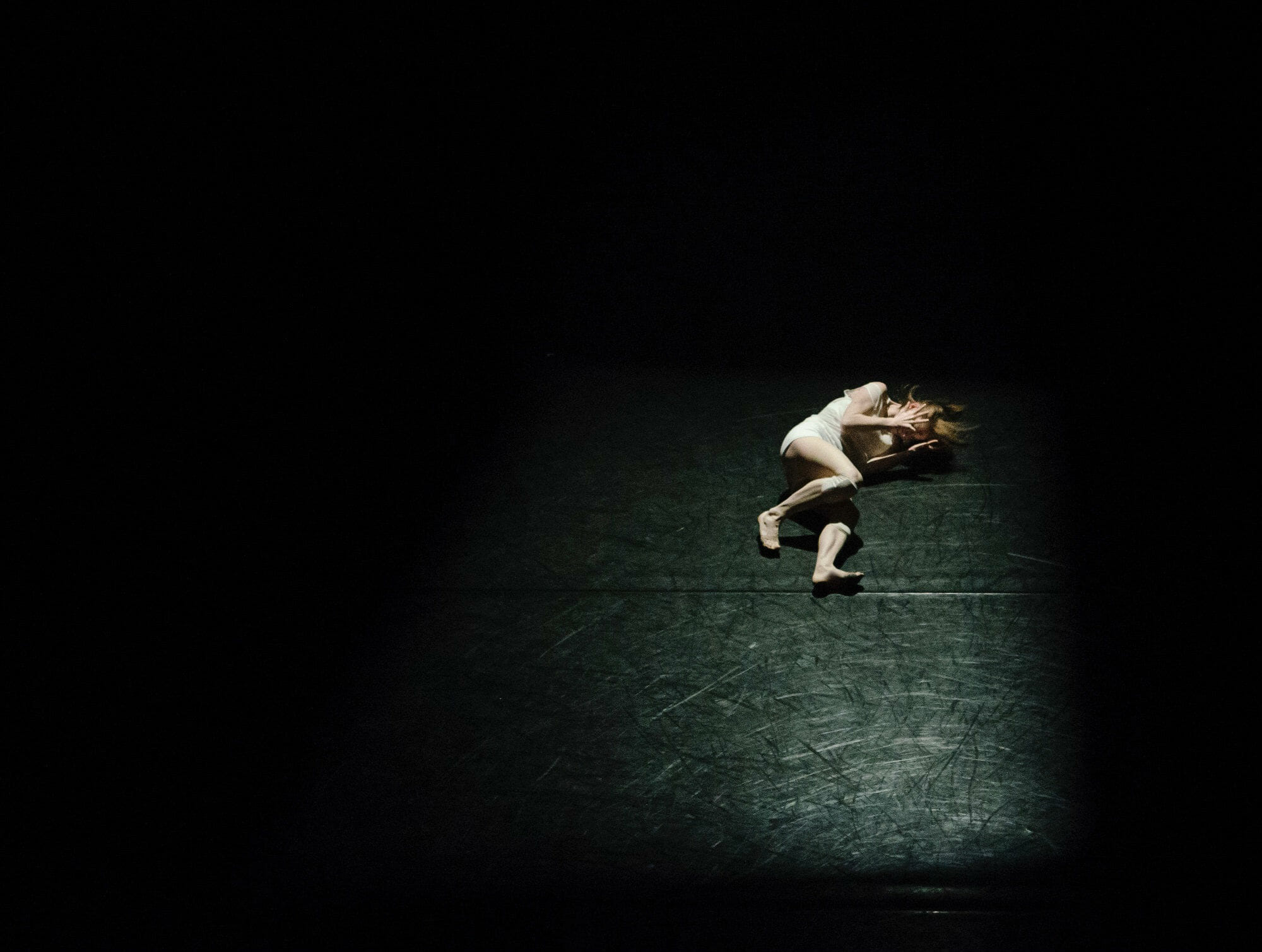 Adding to the believability is Paige Wasserman’s compelling performance. Jean proves to be a pretty demanding role both physically and emotionally, but Wasserman shows she’s more than up for the task. From early on, she manages to connect and get you to open up with her about your life and thoughts on matters like love, rejection, and death. It helps that Jean occasionally sounds like she might be in peril. As she makes her way to and around the darkened stage, encountering unexplained, frightening occurrences, her vulnerability encourages you to be vulnerable as well, and to not hesitate when the conversation turns deeply personal.
Adding to the believability is Paige Wasserman’s compelling performance. Jean proves to be a pretty demanding role both physically and emotionally, but Wasserman shows she’s more than up for the task. From early on, she manages to connect and get you to open up with her about your life and thoughts on matters like love, rejection, and death. It helps that Jean occasionally sounds like she might be in peril. As she makes her way to and around the darkened stage, encountering unexplained, frightening occurrences, her vulnerability encourages you to be vulnerable as well, and to not hesitate when the conversation turns deeply personal.
However, there’s a dark side to this. As the night goes on, the conversation turns increasingly to Dessa, the theater’s star actress who just wrapped the leading role of Maria in The Sound of Music. Jean has it bad for Dessa, who clearly doesn’t return the interest, and it soon becomes apparent that Jean hasn’t been dealing with the rejection very well. In fact, it’s clear that she’s obsessed with the charismatic star. Her demeanor gradually evolves, as she admits to doing things in her pursuit of Dessa that clearly cross the line of what’s appropriate and eventually enter the realm of disturbing and inhumane.
 Obsession is always an interesting – and dangerous – phenomenon. Put to good use, it can be a driving force. A star like Dessa likely never achieved the success she’s had without being a bit obsessive about her acting. Just about everyone involved with theater is passionate about the arts, which is just one step removed from obsessive. But when that same passion or obsession turns toward someone who doesn’t return it, the results are rarely good.
Obsession is always an interesting – and dangerous – phenomenon. Put to good use, it can be a driving force. A star like Dessa likely never achieved the success she’s had without being a bit obsessive about her acting. Just about everyone involved with theater is passionate about the arts, which is just one step removed from obsessive. But when that same passion or obsession turns toward someone who doesn’t return it, the results are rarely good.
Ghost Light takes a truly dark turn as it nears its end that’s both twisted and frightening, and it changes everything we thought we knew about Jean. It’s in many ways a bold choice creatively – as a horror fan, I found myself smiling that they actually went there – but it also creates some real issues with the experience and might not always play well with participants. Near the end, I found myself often unsure of how to reply to Jean. Had these events been happening in real life, I would have hung up and immediately called the police, not stayed on the phone talking with her. The fact that the experience continues and the conversation goes on actually made me feel a little complicit, but I don’t think fairly because doing the responsible thing isn’t really an option available to you.
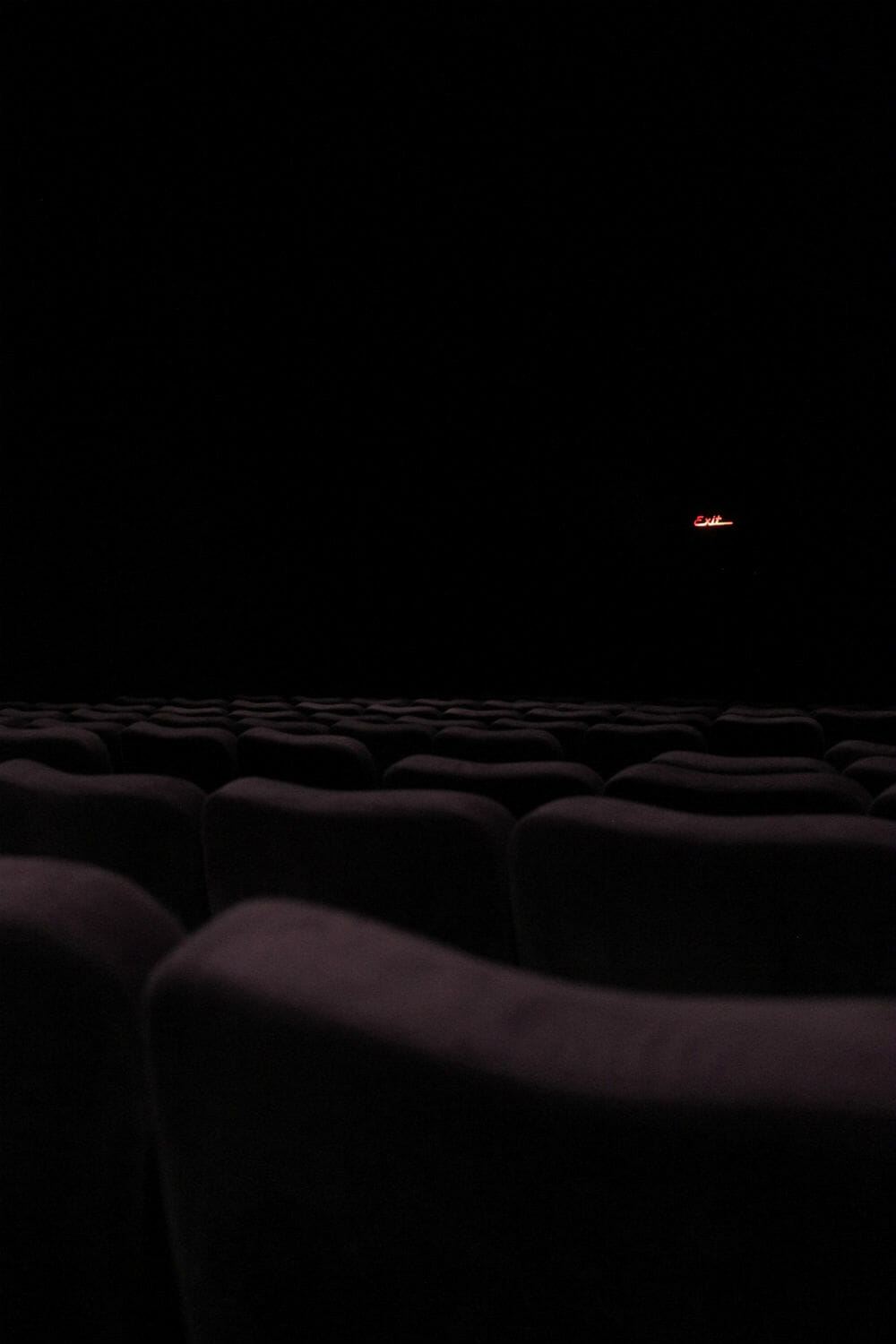 But to get a little deeper, for many, the revelation could be seen as something of a betrayal. Less than thirty minutes before, I was telling Jean stories about my life and sharing some deeply personal beliefs that I rarely reveal to others. To then discover that she’s an outright psychopath, even in the context of fiction, could be taken as an abuse of that trust. Of course, there’s also an argument to be made that this is exactly the sort of thing psychopaths do – they use your trust against you, especially when they’re motivated by obsession. Perhaps the fact that it’s a betrayal is entirely the point. Either way, it’s controversial territory for a story that otherwise is pretty straightforward in its ambitions.
But to get a little deeper, for many, the revelation could be seen as something of a betrayal. Less than thirty minutes before, I was telling Jean stories about my life and sharing some deeply personal beliefs that I rarely reveal to others. To then discover that she’s an outright psychopath, even in the context of fiction, could be taken as an abuse of that trust. Of course, there’s also an argument to be made that this is exactly the sort of thing psychopaths do – they use your trust against you, especially when they’re motivated by obsession. Perhaps the fact that it’s a betrayal is entirely the point. Either way, it’s controversial territory for a story that otherwise is pretty straightforward in its ambitions.
Unlike much of Candle House Collective’s work, Ghost Light doesn’t ask that you make hard, morally ambiguous decisions. There’s no real conflict or controversy at play here – you can sympathize with Jean’s frustration at being rejected and ignored, but no one can be expected to support what she does. Ghost Light is all about the gradual reveal of who its protagonist truly is as she serves as an example of the depths to which unchecked obsession could drive an irrational mind. In the process, you discover what’s really causing the disturbances at the Papaki Theater.
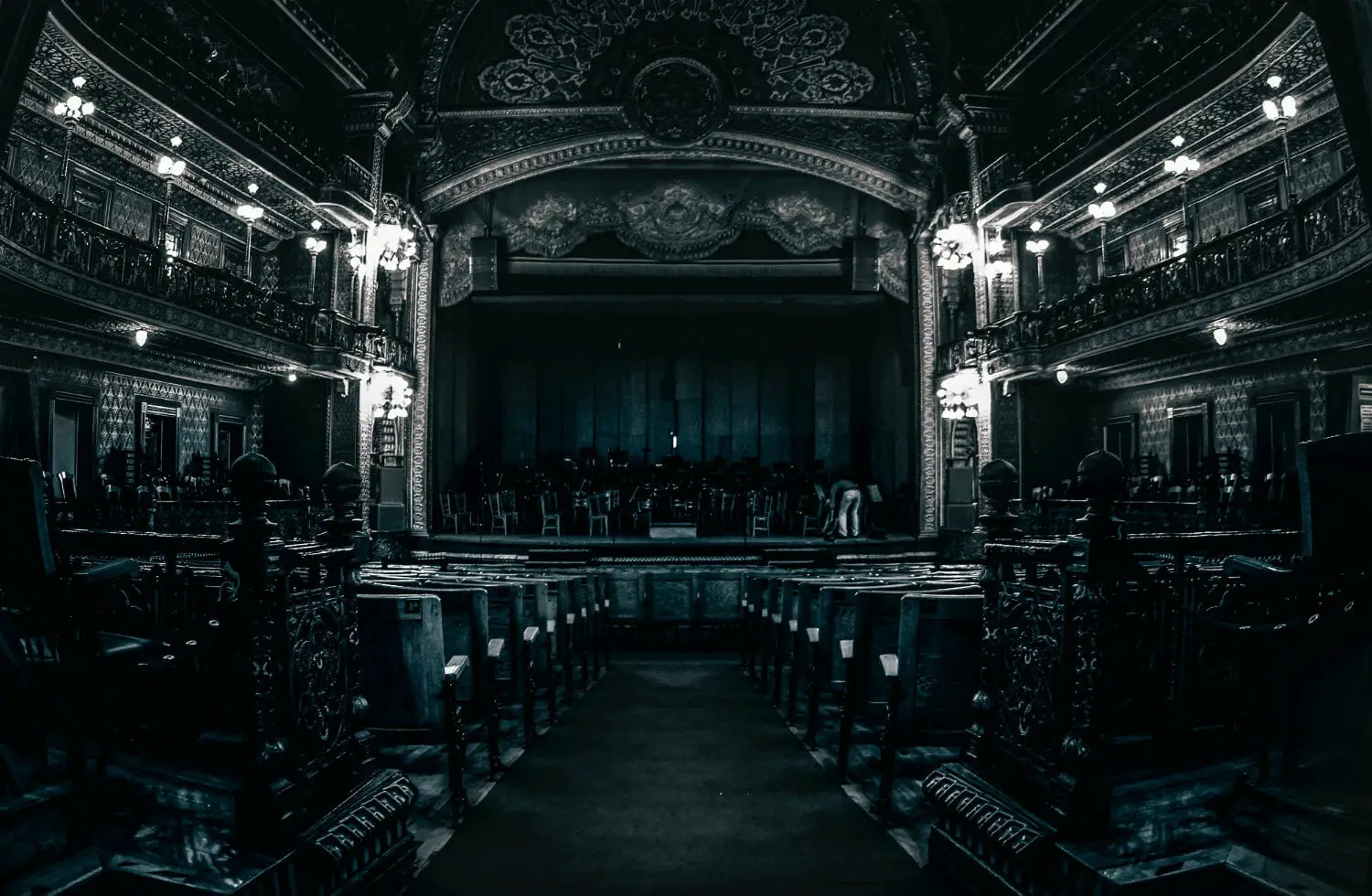
As a work of interactive horror that you experience within a darkened or candlelit room in your home, Ghost Light works well. It’s creepy, suspenseful and well-performed. But to Candle House Collective fans who are accustomed to deeper, more complex storytelling from Neiden and his team, that may not be enough. In a multi-work collection like Under the Bed, surely there’s room for a dark tale that aims for little more than putting a chill down your spine, but as a standalone piece, there’s little to elevate it above other solid works of horror. At its heart, Ghost Light may be a story about obsession, but it’s hard to imagine it inspiring much in the way of it.
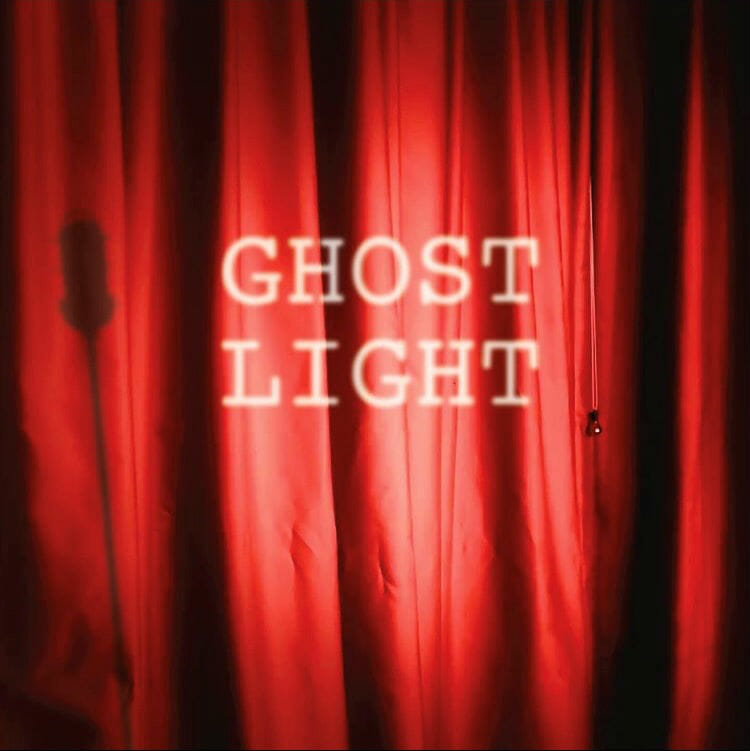
Find more information on Candle House Collective and their Under the Bed series on their website and Instagram.
If you would like a tour of a real haunted theater, check out US Ghost Adventures’ Seattle tour of Moore Theater. More Information can be found here.



